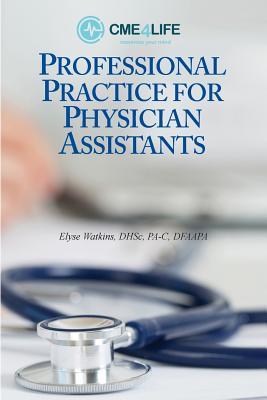The practice of medicine as a physician assistant is much more than antibiotics, pathophysiology of disease and physical exams. Sure, we need foundations; we need building blocks, yet to be a well-rounded provider you need additional skills to embrace professional practice.
The National Commission for the Certification of Physician Assistants (NCCPA) has now made these skills required and will be up to 5% of the Physician Assistant National Certifying Exam (PANCE.)
We need to learn such areas as professional development, legal/medical ethics, medical informatics, extraordinary patient care and communication, physician/PA relationship and public health.
Professional Practice for Physician Assistant provides clear understandings of the core concepts of the professional practice portion of the PANCE.

The practice of medicine as a physician assistant is much more than antibiotics, pathophysiology of disease and physical exams. Sure, we need foundations; we need building blocks, yet to be a well-rounded provider you need additional skills to embrace professional practice.
The National Commission for the Certification of Physician Assistants (NCCPA) has now made these skills required and will be up to 5% of the Physician Assistant National Certifying Exam (PANCE.)
We need to learn such areas as professional development, legal/medical ethics, medical informatics, extraordinary patient care and communication, physician/PA relationship and public health.
Professional Practice for Physician Assistant provides clear understandings of the core concepts of the professional practice portion of the PANCE.